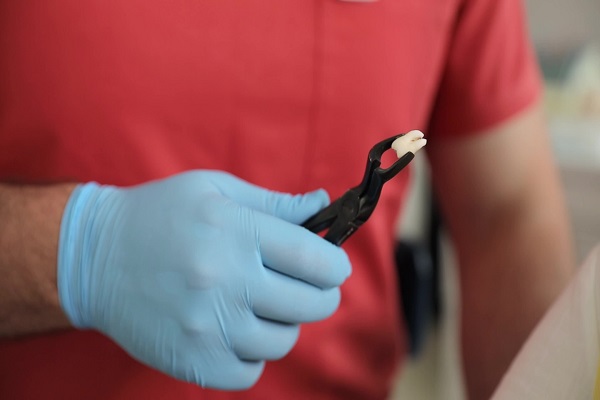4 Tips to Prepare for a Tooth Extraction
is a safe, relatively quick procedure. Still, it’s a good idea to understand the procedure and prepare for it as best as possible. This will make both the procedure and the post-surgical recovery go as smoothly as possible.
Tip one: compile your medical history
The dentist or surgeon performing the surgery will likely want to know your medical history beforehand. This will help them to assess risks and choose the best strategies moving forward. For example, if you are at high risk of developing an infection, the dentist may recommend putting you on antibiotics preventatively before the surgery even begins. Or, if you are on blood thinners, you may need to get cardiologist approval to stop taking them before the surgery so that you don’t bleed excessively. It is essential to be thorough when compiling your medical history so that the dentist has all of the information they need to help keep you safe.
Tip two: arrange your ride home
It is crucial to ensure that you have a ride home after the tooth extraction. This is particularly important if you undergo general anesthesia during the surgery, as it will be unsafe for you to operate motor vehicles for 24 hours due to impaired judgment and reaction time. However, even if you do not undergo general anesthesia, it is still wise to find someone else to drive you. Even if it’s safe and relatively minor, tooth extraction is still a surgery, and you should focus on resting afterward.
Tip three: stock up on foods and liquids before your procedure
After your surgery, you should not eat solid foods for at least 24 hours. This will give your mouth more time to heal and clot without putting unnecessary strain on it. Therefore, it is a good idea to prepare for these 24 hours (if not longer) by stocking up on soft foods and liquids. This can include but is not limited to broths, smoothies, yogurts, puddings, and apple sauces. Any foods that don’t require chewing are great for post-surgical recovery.
Tip four: buy over the counter pain medications
If you don’t already own some, it’s crucial to buy over-the-counter pain medication preemptively. NSAIDs like Tylenol, Motrin, and Ibuprofen are proven to be effective in managing this kind of pain. Your dentist may prescribe some more potent painkillers, but even if they do, you want to be prepared when the prescription wears off in case you’re still experiencing discomfort.
Avoid taking aspirin. Aspirin is a blood thinner and will delay or prevent clot formation, which will cause longer recovery times and may increase the risk of complications like dry socket (when the clot falls out).
Bonus tip: don’t worry
Getting a tooth pulled is a standard and safe procedure. As long as you follow these tips, as well as any of your dentist’s recommendations, and you get lots of rest after the extraction, you’ll be back on your feet and going through your everyday routines before you know it.
Request an appointment here: https://www.brightsmile-dental.net or call Bright Smile Dental at (773) 733-5876 for an appointment in our Chicago office.
Check out what others are saying about our dental services on Yelp: .
Related Posts
Wisdom tooth extraction is often necessary in order to promote good oral health. The procedure can be daunting to some; however, the result is a healthier oral cavity, thus ensuring better overall health. Because wisdom tooth extraction is an involved procedure, it can be helpful to know what to expect beforehand. This allows for the opportunity…
A wisdom tooth extraction is a popular procedure that most people are familiar with. However, as with most popular knowledge, not everything people believe is true, and that includes beliefs about removing wisdom teeth. Debunking these myths is important as they could be prohibiting individuals from getting the procedure that is necessary to maintain good…
A wisdom teeth extraction can be daunting for many; however, rest assured that modern-day dentistry has allowed for the evolution of tools that makes the procedure safe and efficient. Even so, a wisdom tooth extraction can make for a pretty lengthy and involved recovery process. Thankfully, there are a lot of ways to make the…
Removal of the wisdom teeth is something that a lot of people experience because their mouths may not have room for them. However, the procedure often intimidates people because they fear getting their teeth pulled. Being aware of what happens during a wisdom teeth removal process can be helpful for someone who has an upcoming…
